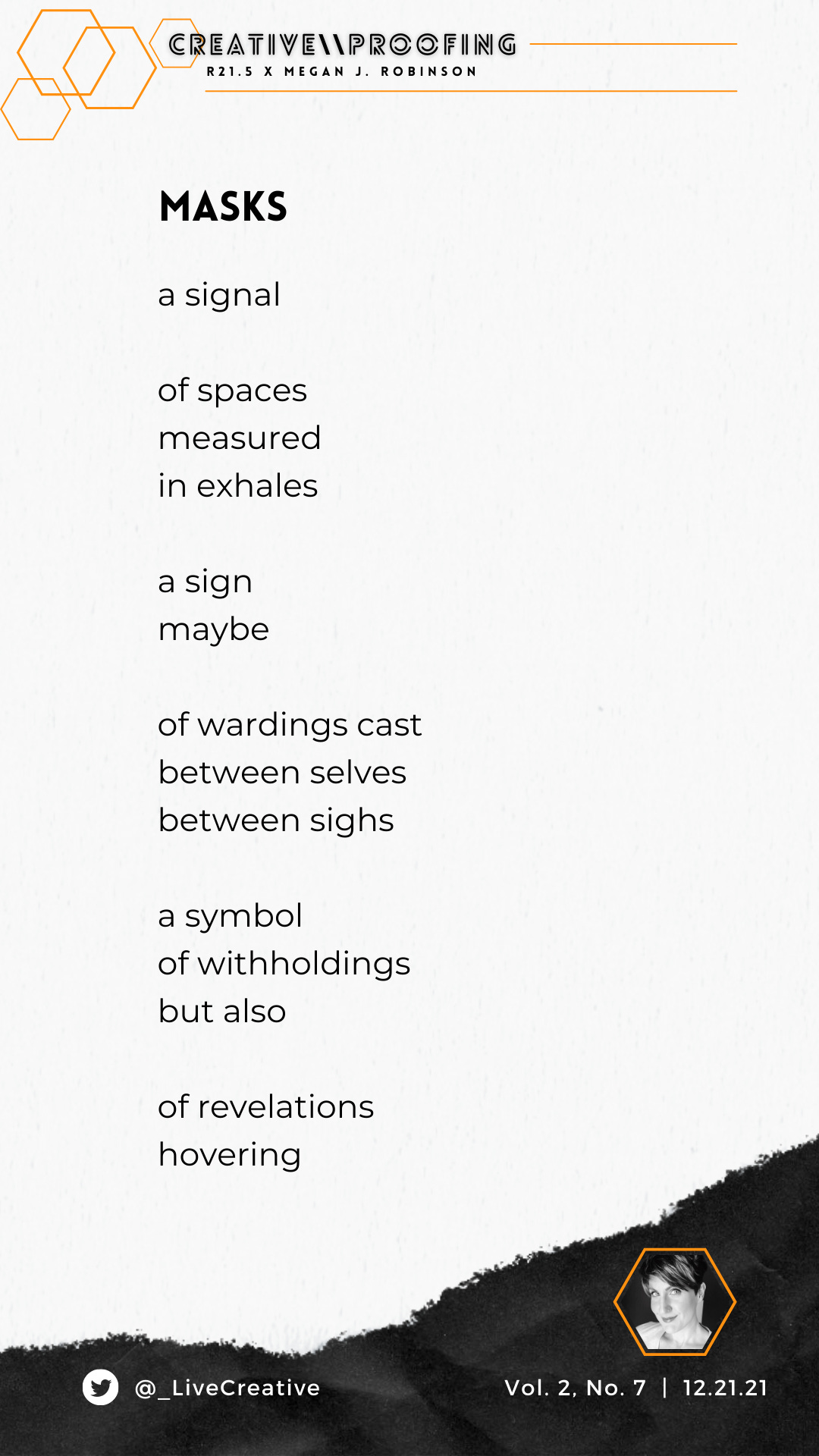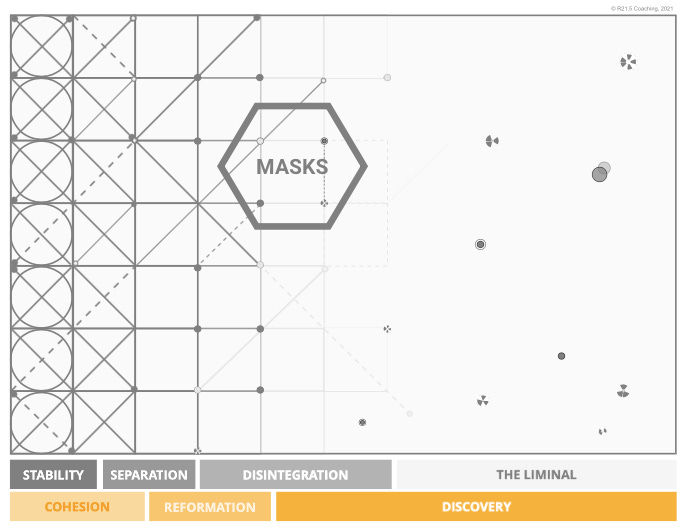Welcome to Creative\\Proofing, a space for hopeful, creative people learning to live wisely by asking questions about the good life: what it is, how to design our own, and how to live it well.
This newsletter is built on the hope of reciprocal generosity: I want to share what I find beautiful and meaningful, and I'd love for you to do the same. If you're inspired by anything I share, it would mean so much if you shared it with others, subscribed, dropped me a line and let me know, or paid according to the value it has for you. No matter what, I hope we can create and learn together.
My first semester in seminary, I took an acting course. My advisor Dr. Reg Grant taught on dramatizing scriptural stories and delivering sermons; he told me I should take his course, and I, poor fool, not knowing any better, registered for it.
The first period, Dr. Grant shared his philosophy of acting by way of contrast with a friend of his, a well-known theatre performer. His friend's philosophy, he said, was to put on the character, as if pulling on a mask, thus becoming someone else, someone different. But, Dr. Grant shared, his approach to acting was to take off the masks, to find the seeds of the character within, and, instead of becoming someone different, to become more yourself.
By this point, I found myself silently having a meltdown, my inner landscape looking rather like Edvard Munch's The Scream. I sensed that I had long been wearing a mask of myself, for a variety of reasons, and I really saw no reason to take it off. Mask-Megan was quite fine, thank you very much.
You may be thinking that of course I dropped the class as soon the bell rang.
But, actually...
I stayed.
I've been thinking a lot about masks lately (you may have noticed that they've become A Thing in the last couple of years). Our familiarity with these pleated, elasticized face coverings that fog up glasses and collect our exhales is a wearying feature of our days.
I know in some countries, masks were a regular part of life for many people even prior to recent events; yet for many of us, regularly wearing them has dramatically changed our interactions with the world around us, and with each other. We've come to question our impact on others in the most basic of ways: sharing the same air, breathing together in synchronized inhales and exhales. Have I passed on the virus? Have I caught a regular cold or is it Covid? This utilitarian tool has become the site of identity and wealth displays, even a cultural shibboleth.
The literal masks we wear in public these days signal our postures or attitudes toward others: we keep the masks on for protection, and take them off when we perceive safety. It's no great leap to see the metaphorical significance of this: masks hold back things we'd rather not share, or protect us from harm. Masks, we hope, keep us safe. So the question becomes, how do we know we're safe? When do we feel safe enough?
But The Current Unpleasantness is not why I'm thinking about masks (or not the only reason). I recently began counseling, in part to understand my life-long anxiety, as well as to deal with chronic pain that has evolved over the last two years. I knew that, if nowhere else in my life, I would bring all the pieces of my self into that specific hour every week. I would find a way to slowly re-form them into a coherent whole, and somehow, befriend that person again, the stranger I've become to myself over the last decade. I've decided that I no longer wanted to carry, or wear, the masks I've acquired over the years.
Sometimes it takes only one traumatic event - an overwhelmingly Big T thing - to make us pull on a mask. Sometimes it's a slow, steady accumulation of small events - a collection of Small Ts - that builds the mask, one you don't even realize you're wearing until one day, you no longer recognize yourself. You realize that you no longer understand what you're feeling, why you feel the way you do, or how to change the patterns of your life.
I recently heard someone refer to the show Watchmen, mentioning a moment in which the character Laurie Blake says,
People who wear masks are driven by trauma. They’re obsessed with justice because of some injustice they suffered, usually when they were kids. Ergo, the mask. It hides the pain.
Masks can serve as a badge of war, subtly announcing that we've gone through things we cannot express, cannot share. To hide the pain, the tender spots, we wear masks that signal how others should think of us: the strong one, the capable one, the charming, the interesting. We wear lovely masks to distract the gaze from focusing on the cracks beneath, the missing pieces, the wire and duct tape that holds together a self we feel disintegrating a little more each day. We wear the masks because we're not sure if who we are underneath is worth gazing upon.
And so, our trauma-fitted, socially-ready mask becomes more and more part of us, until one day we realize that to take it off means risking a whole life.
I'm not sure if I've ever fully removed my mask, or if I've simply exchanged one for another over time. I've spent the last few years moving in and out of spaces that reward authority more than authenticity, competency more than vulnerability. I've learned how masks can be true, even while they still conceal. And I've learned how masks can become a preemptive strike against perceived adversaries: to manipulate perceptions and relationships while appearing authentic.
The thing is, there's nothing wrong with masks. Firemen are grateful for theirs every time they get called out to a fire; we like to ensure we don't breathe in asbestos or noxious fumes in old buildings; medical professionals prefer not to risk bodily fluids entering their mouths during triage. Masks can also give us space to recover a bit, to gain some distance and perspective from overwhelming events. Wearing the mask every day feels familiar, stable, safe. Removing it feels scary, unsettling, vulnerable.
The trick is knowing when to wear the mask, and when it needs to come off.
I stayed in that acting class in grad school, despite the terror I felt at the prospect of taking off a mask I'd grown quite used to wearing. I've always been that person who, when told not to peek behind the curtain, I go, "Oh, this curtain? The one I'm pulling back right now?" My curiosity grew stronger than my fear: what if I did take off the mask - what will I discover?
But I also stayed because my advisor created a space in that classroom where vulnerability could safely occur, where practicing and failing and trying again meant we did something right. Author Andy Crouch defines vulnerability as the exposure to meaningful risk. By this he means that to be vulnerable is to move through the world in such a way that allows for the possibility that we may lose something we value, something genuinely essential to our lives.
Dr. Grant's philosophy of acting, of taking off masks called for us as actors to be generous, to take the first step toward others, to be vulnerable and risk sharing something of our true selves while inhabiting a character. To take off the mask, whether on the stage or in our lives, asks us to risk that someone may very well reject the person revealed. And perhaps what's more risky, that they might welcome and accept the person we share, cracks and all.
What I've realized in counseling, in the last couple of years, is that I will never find perfect safety in my relationships with others, in my movements through the world. To take the next step means to risk exposure: to rejection, to wounding, to discovery, to welcome, to healing. It really is a 50/50 shot.
Let's be hopeful, creative, and wise — together.
Shalom,
Megan.






